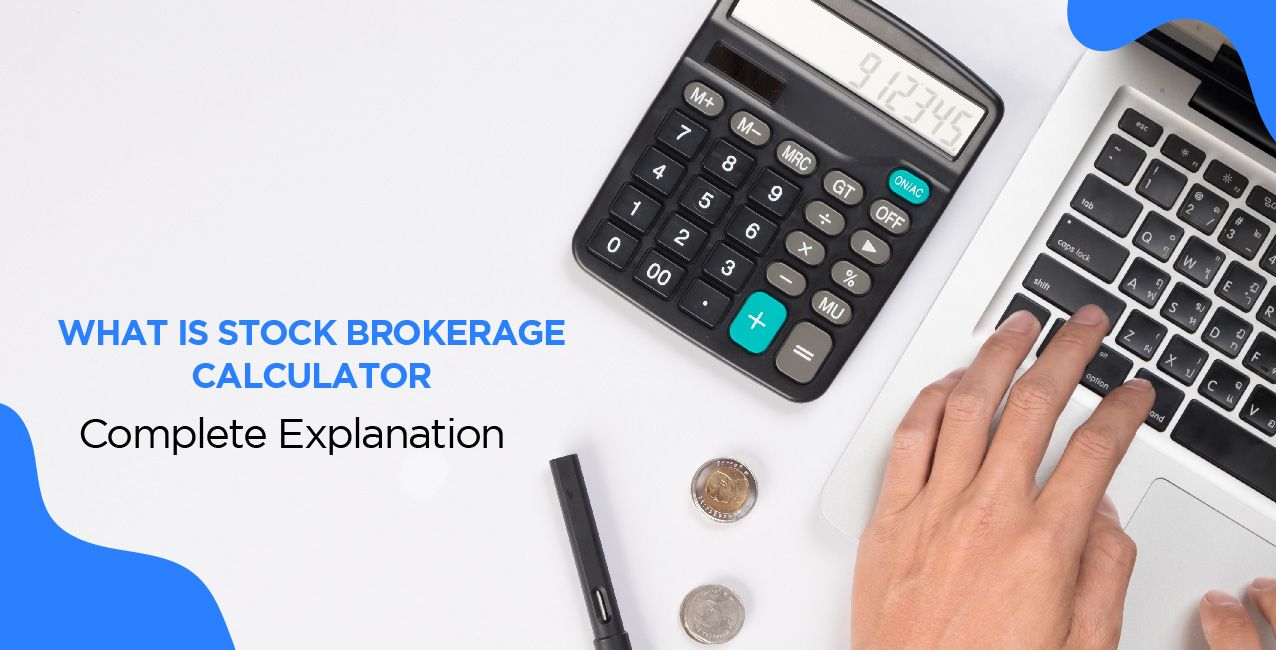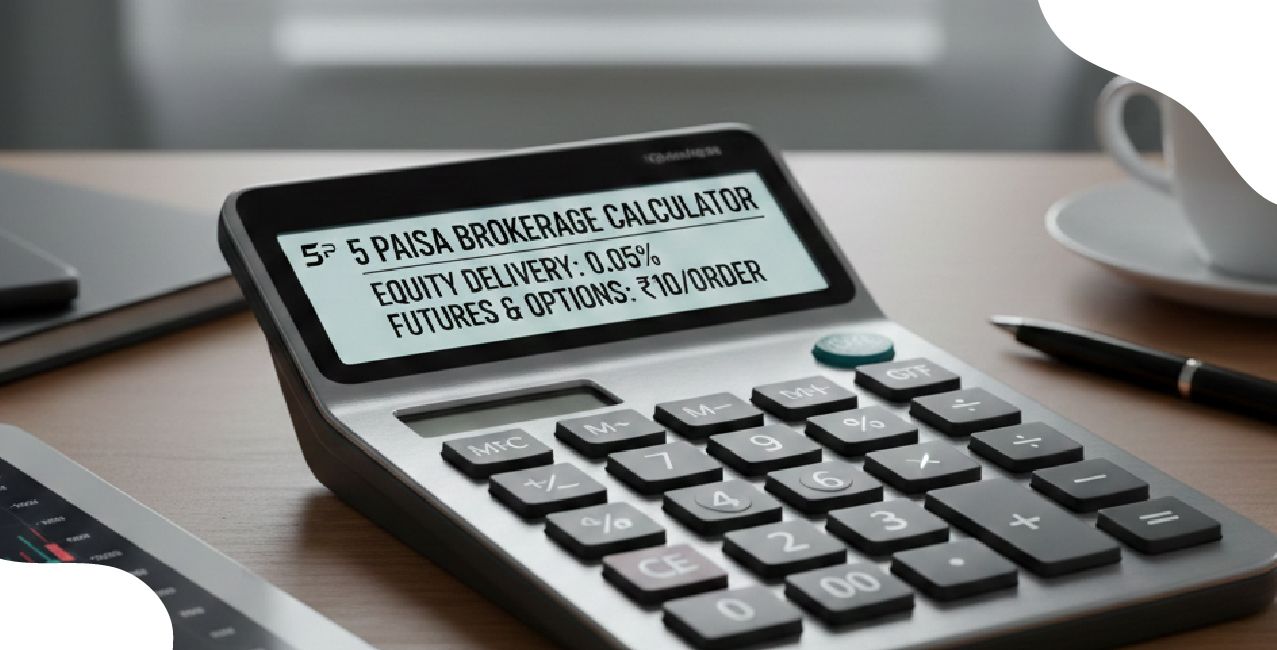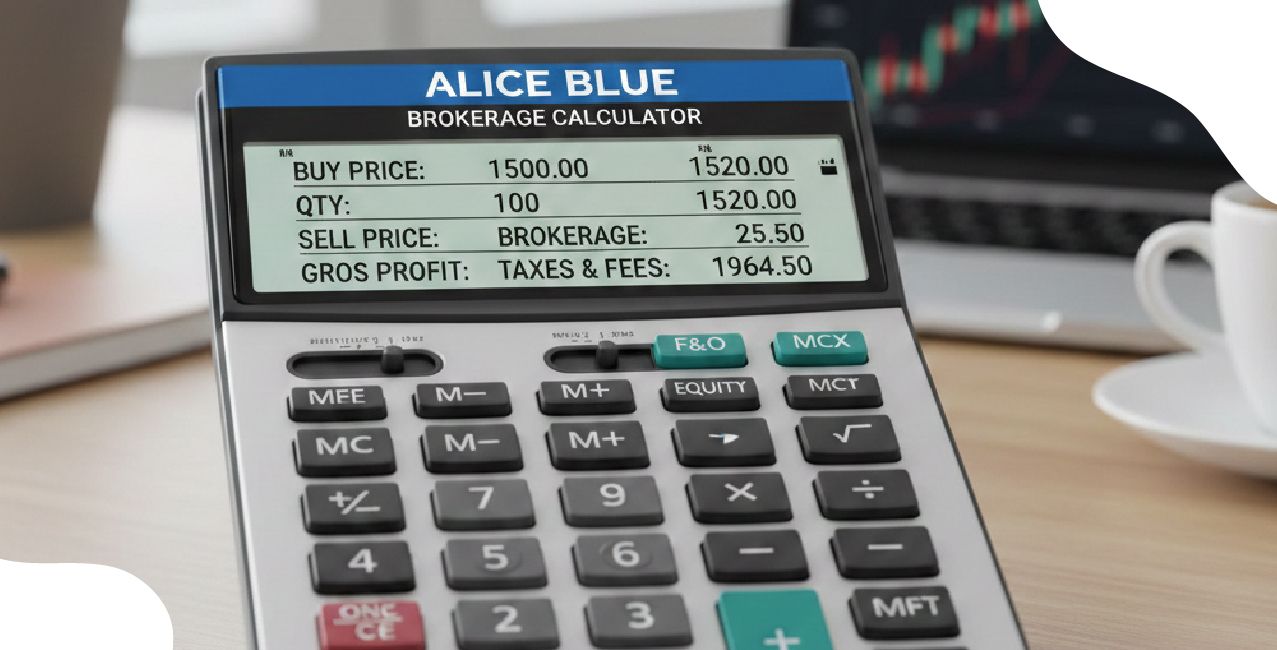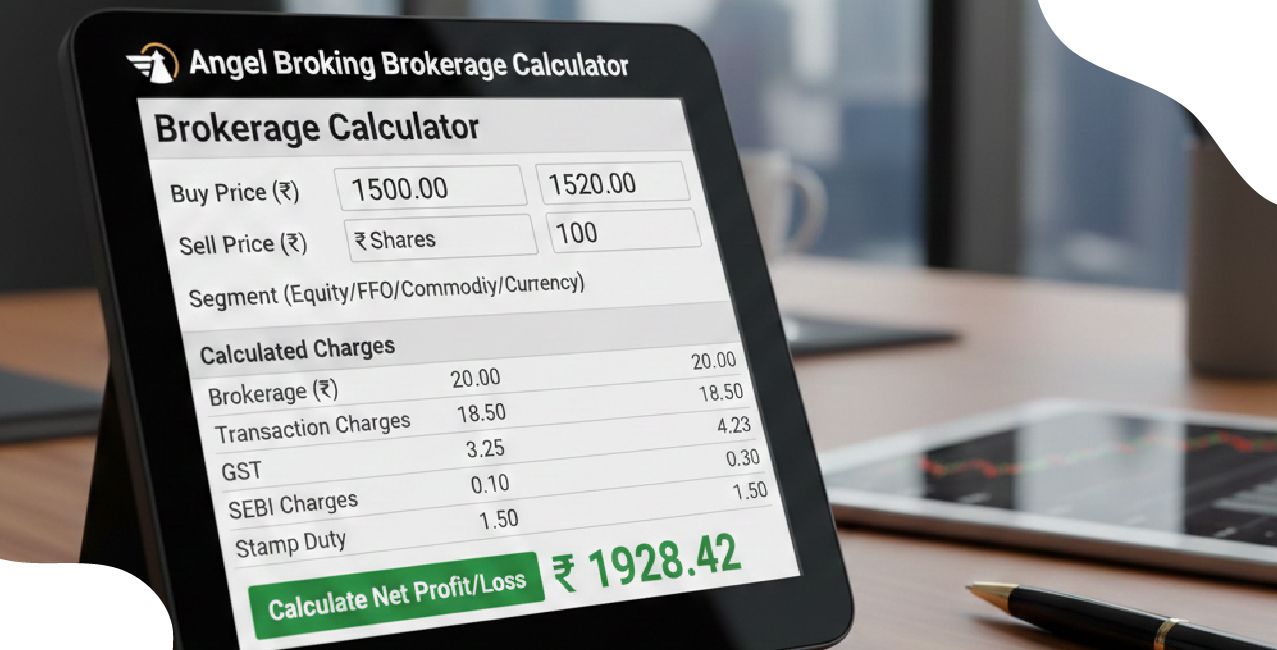What is Stock Brokerage Calculator – Complete Explanation

Check Your Loan Eligibility Now
By continuing, you agree to LoansJagat's Credit Report Terms of Use, Terms and Conditions, Privacy Policy, and authorize contact via Call, SMS, Email, or WhatsApp
Ritika, a final-year MBA student from Ahmedabad, was ecstatic. After weeks of studying YouTube videos and following finance influencers on Instagram, she decided to buy her first stock—100 shares of a mid-cap IT business for ₹520 per share.
Her colleague Abhay enquired the following day, "So, how much profit did you make?"
She laughed and replied, "₹1,000!" "I sold them for ₹530.
Abhay: "Did you check your brokerage charges, taxes, and transaction fees?"
Ritika stopped. "Wait… what charges?"
That's when she realised the value of a stockbroking calculator.
Thousands of new traders in India, like Ritika, enter the stock market each day without fully understanding the costs. This blog explains what a broking calculator is, how to use one, and why it is essential for every investor and trader.
What Is a Stock Brokerage Calculator?
A stock broking calculator is an online application that allows you to estimate the total charges you will incur when purchasing and selling stocks.
The breakdown is as follows:
- Broking Fees
- Security Transaction Tax (STT)
- Exchange Transaction Charges
- GST
- SEBI Charges
- Stamp Duty
So, before you jump to conclusions regarding profit or loss, use the calculator to get a clear picture.
Why You Can’t Ignore Brokerage Charges?
Traders often believe that buying a stock for ₹500 and selling it at ₹510 results in a profit of ₹10 per share.
That is not true.
Let's examine the kind of fees that may be incurred in a simple, everyday transaction.
Type of Charge | Applies On | Approximate Rate |
Brokerage | Trade value | ₹20 per order (or percentage-based) |
Securities Transaction Tax (STT) | Sell-side (for intraday) | 0.025% |
Exchange Transaction Charges | NSE/BSE | 0.00345% |
SEBI Charges | Trade value | ₹10 per crore |
Stamp Duty | Buy-side only | 0.003% |
GST | On brokerage + transaction charges | 18% |
Even on small transactions, these fees can reduce your profits, and for high-volume traders, they can make or break your strategy.
How Does a Stock Brokerage Calculator Work?
Let's imagine you wish to assess the costs of purchasing and selling 100 shares of a corporation.
A broking calculator often asks for:
- Buy Price
- Sell Price
- Quantity
- Type of trade: intraday, delivery, or F&O
- Exchange: NSE or BSE.
- It displays the total buy value.
- Total Sale Value
- Total charges (broking, taxes, and fees)
- Net Profit or Loss
Some brokers, including Zerodha, Upstox, and Angel One, provide their own calculators online.
Example: Intraday Trade Calculation
Read More - How to Become a Stock Broker in India
Let's look at Ritika's actual trade utilising a broking calculator.
Trade Details:
- Buy Price: ₹520.
- Selling Price: ₹530.
- Quantity: 100.
- Trade Type: Intraday
Broker: Zerodha (fixed rate of ₹20 for each executed order).
Particulars | Value (₹) |
Buy Value | ₹52,000 |
Sell Value | ₹53,000 |
Brokerage (Buy + Sell) | ₹40 |
STT on Sell | ₹13.25 |
Exchange Txn Charges | ₹3.65 |
GST (18% on brokerage + txn) | ₹7.83 |
SEBI Charges | ₹0.10 |
Stamp Duty | ₹1.56 |
Total Charges | ₹66.39 |
Net Profit | ₹933.61 (not ₹1,000) |
Ritika imagined she earned ₹1,000. However, after the charges, she made ₹933.61.
Doing 10 trades every week adds up to roughly ₹650 in hidden charges.
Intraday vs Delivery: Cost Comparison
Charge Type | Intraday Trade | Delivery Trade |
Brokerage | Usually flat (e.g., ₹20/order) | Some brokers frequently offer complimentary services. |
STT | Only on the sell side | Available on both the purchase and sell sides. |
Stamp Duty | On the buy side only | On the buy side only |
GST | Regarding broking and exchange charges | On brokerage and exchange charges |
Exchange Fees | Applies | Applies |
SEBI Charges | Applies | Applies |
Long-term investors benefit from delivery trades as they are cheaper. Intraday traders pay more frequently since their transactions are bigger in volume and frequency.
Example- Ritika purchased 100 shares at ₹500 each and chose delivery. She paid just ₹75 in total charges. Abhay earned ₹1,000 from buying and selling shares on the same day (intraday) but had to pay ₹110 in expenses, leaving him with only ₹890. Ritika laughed and said, "Delivery is cheaper." Abhay laughed, "This is fun, but it costs more!"
Top Brokerage Calculators in India
Would you like to give one a try? Here are some of the most trusted stock-broking calculators:
Broker | Brokerage Calculator Link | Charge Type |
Zerodha | zerodha.com /calculator | Flat ₹20/order |
Upstox | upstox.com | ₹20/order |
Groww | groww.in | ₹20/order |
Angel One | angelone.in | 0.25% or ₹20 max |
ICICI Direct | icicidirect.com | Slab-based (varies) |
Try a few and see how your charges differ by broker.
How Can You Reduce Brokerage Charges?
- Choose Discount Brokers: Unlike traditional brokers who charge a percentage, discount brokers just charge ₹20.
- Avoid Frequent Small Trades: Small trades have comparatively high percentage fees.
- Use Free Delivery: Some brokers charge no broking fees on delivery trades.
- Keep Track Using a Calculator: Always examine your net profit before making a trade.
- Bundle Orders: Placing a single large order saves money over placing many small orders.
Conclusion
A stock broking calculator is not just for finance professionals; it is necessary for all traders. Ritika learnt that it is not about the buy-sell price, but rather what you actually take home after expenses. Before your next trade, take a few seconds to use the calculator, you will save your penny. Stay smart with tools like this, available exclusively on LoansJagat.
FAQs on Stock Brokerage Calculators
Is utilising a broking calculator free?
Yes. All big brokers make it available for free on their websites or apps.
Will my costs be the same as shown?
Almost. Minor variations may occur owing to rounding or changes in tax rates.
Can I use it for F&O trades?
Yes. Most calculators support computations for options and futures.
Do calculators include DP (Depository Participant) charges?
Not always. DP charges (₹10-₹20) apply to every delivery transaction and should be checked individually.
Can I use a single calculator for trading across many brokers?
You can, however, the fees differ by broker. It is recommended to utilise the calculator offered by your individual broker.
Do all brokers charge the same broking fees?
No. Broking fees vary depending on the broker and the package. Discount brokers such as Zerodha, Upstox, and Groww charge a flat fee of ₹20 per trade, whereas full-service brokers may charge a percentage (e.g., 0.3%) of the transaction value.
Is it possible to calculate my brokerage without a calculator?
Yes, but it is difficult. You'll need to account for broking, STT, exchange charges, GST, SEBI fees, and stamp duty, which makes calculators a lot easier and more accurate.
About the author

LoansJagat Team
Contributor‘Simplify Finance for Everyone.’ This is the common goal of our team, as we try to explain any topic with relatable examples. From personal to business finance, managing EMIs to becoming debt-free, we do extensive research on each and every parameter, so you don’t have to. Scroll up and have a look at what 15+ years of experience in the BFSI sector looks like.
Subscribe Now
Related Blog Post
Recent Blogs
All Topics
Contents
Quick Apply Loan
Consolidate your debts into one easy EMI.
Takes less than 2 minutes. No paperwork.
10 Lakhs+
Trusted Customers
2000 Cr+
Loans Disbursed
4.7/5
Google Reviews
20+
Banks & NBFCs Offers
Other services mentioned in this article








